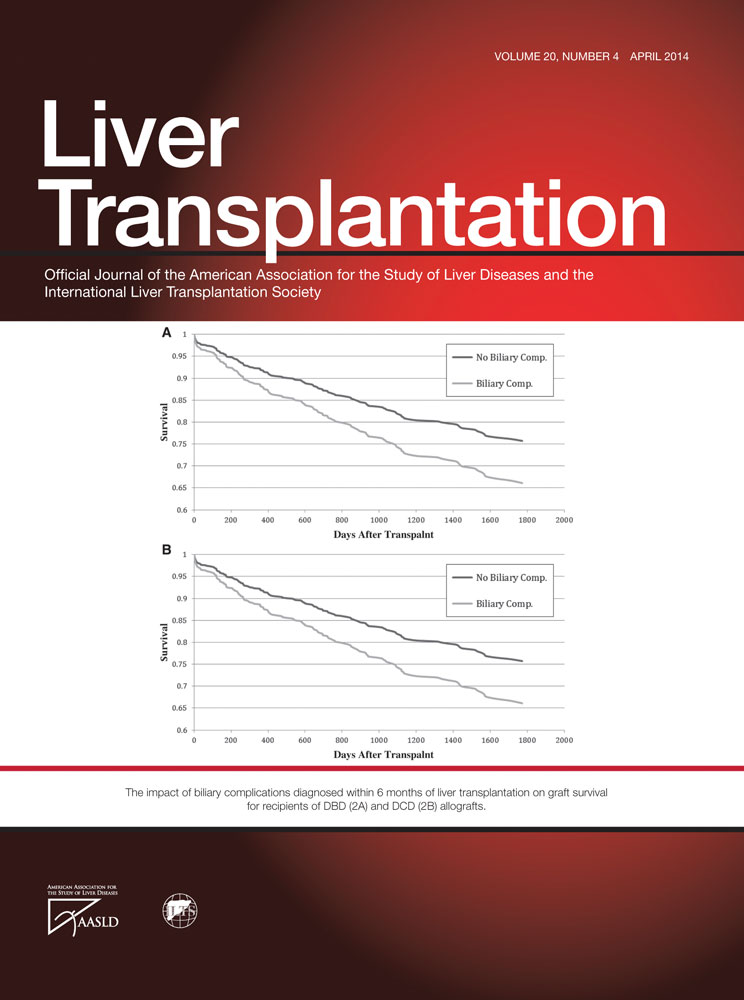Muscle mass and mortality in chronic liver disease: The impact of testosterone
We read with interest a recent publication in Liver Transplantation describing a significant association between muscle mass and mortality in men after liver transplantation.1 This finding was also demonstrated for a pretransplant cohort in which reduced muscle mass was associated with increased mortality independently of the Model for End-Stage Liver Disease score.2 What is particularly interesting is the fact that the association was significant only for men. We hypothesize that this finding may be primarily due to reduced testosterone production in men with cirrhosis.
Low testosterone levels have been reported in up to 90% of males being evaluated for liver transplantation.3, 4 The magnitude of the reduction in serum testosterone correlates with the severity of liver disease, as measured by the Child-Pugh score. We have previously demonstrated a significant association between testosterone levels and mortality in men with liver disease.3 A drop of 1 nmol/L in total testosterone or a drop of 10 pmol/L in free testosterone was associated with an 8% increase in mortality. This increase in mortality was independent of previously recognized markers of mortality, including the Model for End-Stage Liver Disease score and serum sodium.
Many factors, including protein and energy malnutrition, systemic inflammation, and immobility, contribute to the loss of muscle mass in the setting of advanced liver disease. However, it is likely that testosterone insufficiency also plays an important role. Testosterone stimulates satellite cells and myocyte precursors, which lead to increased growth of new and existing muscle fibers.5 Testosterone therapy has been shown to have a dose-dependent, linear relationship with muscle mass in both healthy and hypogonadal men.6, 7 Because of the widespread expression of the androgen receptor, testosterone can also affect bone mineral density, hematocrit, and insulin sensitivity, and it may influence adipose tissue and immune function.8-10
The data demonstrating that low muscle mass predicts mortality in men with cirrhosis1 and our finding that testosterone deficiency is independently associated with mortality in this group3 suggest a possible causal link. The next logical step would be to explore the relationship between these 2 factors in an observational study in men with advanced liver disease. This may provide a rationale for conducting a prospective trial to explore the impact of testosterone therapy on muscle mass and mortality in the setting of advanced cirrhosis.
-
Marie Sinclair, M.D.1Peter W. Angus, M.D.1Mathis Grossmann, M.D.2Paul J. Gow, M.D.1
-
1Liver Transplantation Unit and 2Endocrinology UnitAustin HospitalHeidelberg, Australia




